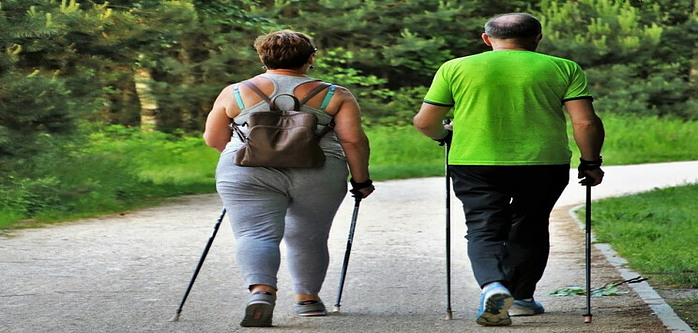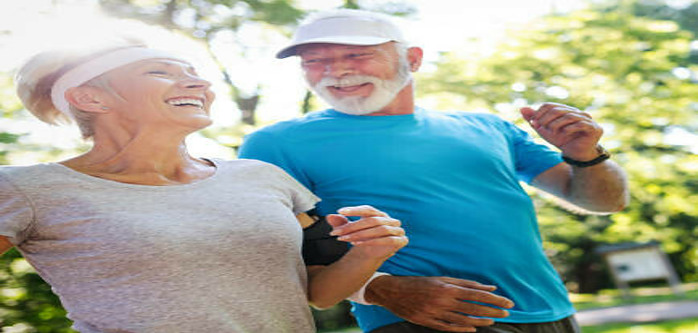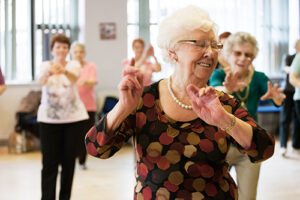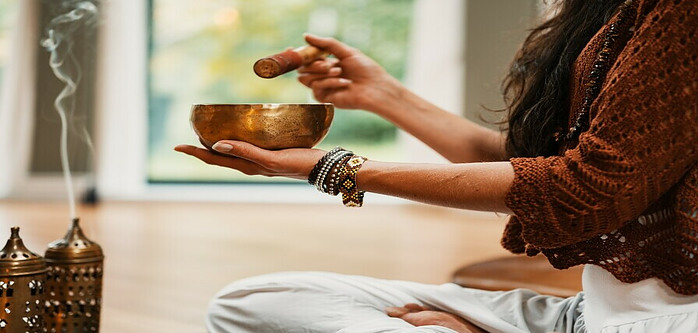Embracing the Golden Years: Staying Healthy and Active at 65
Rule #1 – Stay hydrated.
Rule #2 – Start any exercise session with some mild stretching to warm up.
Rule #3 – If pain creeps in, stop what you’re doing immediately. Paid is a signal that you are overdoing it.
Understanding the physical changes at 65 and how to adapt

As we get older, there are steps you can take to maintain your health and well-being, such as:
– Eat a balanced diet that is rich in calcium, vitamin D and other nutrients that support your bones, muscles, and skin.
– Exercise regularly to keep your muscles strong, your joints flexible and your heart healthy. Choose activities that you enjoy and are suitable for your level of fitness. Later in this post we will take a look at, among other things, the best home exercises for seniors.
– Protect your skin from sun damage by wearing sunscreen, hats and sunglasses. Avoid smoking and limit alcohol intake as they can accelerate skin aging.
– Get regular eye exams and follow your doctor’s advice on how to treat or prevent vision problems. Wear glasses or contacts if needed and use adequate lighting when reading or working.
– Get regular hearing tests and use hearing aids or other devices if needed. Avoid exposure to loud noises and protect your ears with earplugs or earmuffs when necessary.
– Manage your blood pressure and cholesterol levels by following a low-salt, low-fat diet. Take medications as prescribed by your doctor and monitor your blood pressure regularly.
The importance of regular physical activity and its impacts on longevity

Regular physical activity is one of the key factors that can improve the quality and quantity of life. It can reduce the risk of chronic diseases such as cardiovascular disease, diabetes and some cancers. It can also enhance mental health, mood and cognitive function. According to the World Health Organization, physical inactivity is the fourth leading risk factor for global mortality. Therefore, it is important to engage in at least 150 minutes of moderate-intensity aerobic exercise or 75 minutes of vigorous-intensity aerobic exercise per week as well as muscle-strengthening activities on two or more days per week.
Tips for age-appropriate exercises to maintain mobility and strength
Exercise is important for people of all ages but especially for older adults who want to maintain their mobility and strength. Here are some tips for age-appropriate exercises that can help you stay fit and healthy:
– Choose activities that you enjoy and that suit your abilities. For example, you can try walking, swimming, cycling, dancing or gardening.
– Aim for at least 150 minutes of moderate-intensity aerobic exercise per week, or 75 minutes of vigorous-intensity exercise. You can also do a combination of both.
– Include strength training exercises at least twice a week to work all the major muscle groups. You can use weights, resistance bands or your own body weight.
– Add balance and flexibility exercises to your routine to improve your posture, coordination and range of motion. You can do yoga, tai chi or simple stretches.
– Start slowly and gradually increase the intensity and duration of your exercise. Listen to your body and don’t push yourself too hard. Rest when you need to and drink plenty of water.
– Consult your doctor before starting any new exercise program especially if you have any medical conditions or injuries. They can advise you on the best exercises for your situation and how to avoid any risks.
Best Home Exercises for Seniors
Exercise is essential for seniors to maintain their health and independence. Some of the best home exercises for seniors are:
– Walking: You can walk around your neighborhood, in a park or in a mall. Walking improves your cardiovascular fitness, balance and bone density.
– Cycling: You can use a stationary bike or an outdoor bike to work your lower body muscles and heart. Cycling is low-impact and easy on your joints.
– Strength training: You can use resistance bands, dumbbells, kettlebells or your own body weight to build strength in your arms, legs, core and back. Strength training helps prevent muscle loss, osteoporosis and falls.
– Flexibility exercises: You can do stretches, yoga, tai chi or pilates to improve your range of motion, posture and relaxation. Flexibility exercises help prevent stiffness, pain and injuries.
– Balance exercises: You can do exercises that challenge your stability, such as standing on one leg, heel-to-toe walking or tai chi. Balance exercises help prevent falls and improve your coordination and confidence.
You should aim for at least 150 minutes of moderate-intensity aerobic activity per week along with two or three sessions of strength training. You should also do flexibility and balance exercises every day. Remember to warm up before exercising and cool down after. Consult your doctor before starting any new exercise program.
Prioritizing mental health and strategies to stay mentally active

Mental health is an important aspect of our well-being that often gets overlooked or neglected. It affects how we think, feel, and act in different situations. To maintain a good mental health, we need to adopt some strategies that can help us cope with stress, improve our mood and enhance our cognitive abilities. Some of these strategies are:
– Practicing mindfulness: This means paying attention to the present moment without judging or reacting to it. Mindfulness can help us calm our mind, reduce anxiety and increase our awareness.
– Engaging in physical activity: Exercise can boost our mood, energy and self-esteem. It can also release endorphins which are natural painkillers and mood enhancers.
– Learning new skills: Learning something new can stimulate our brain, improve our memory and increase our confidence. It can also provide us with a sense of accomplishment and purpose.
– Seeking social support: Having positive relationships with others can make us feel less lonely, more valued and more supported. It can also provide us with opportunities to share our feelings, thoughts and experiences.
– Seeking professional help: If we are struggling with mental health issues such as depression, anxiety or trauma, we should not hesitate to seek professional help. There are many resources and services available that can offer us guidance, treatment and support.
Nutrition Over 65: Fueling Your Body for a Fabulous You

Balancing a nutritious diet with changing metabolic needs
As people get older their metabolism slows down and their nutritional needs change. It is important to balance a nutritious diet with the changing energy and health requirements of aging. A balanced diet for seniors should include plenty of fruits, vegetables, whole grains, lean protein, healthy fats and low-fat dairy products. These foods provide vitamins, minerals, antioxidants, fiber and other nutrients that can help prevent or manage chronic diseases, such as diabetes, heart disease, osteoporosis and some cancers. Seniors should also limit their intake of salt, sugar, saturated fat and alcohol, as these can increase the risk of high blood pressure, obesity and liver problems. Drinking enough water and staying hydrated is also essential for maintaining good health and preventing dehydration, constipation and kidney stones.
Vital vitamins and minerals to focus on in your senior years
As you age, your nutritional needs may change. Some vitamins and minerals become more important to support your health and well-being. Here are some of the vital nutrients you should focus on in your senior years:
– Vitamin B12: This vitamin helps your body make red blood cells and maintain your nervous system. It also prevents a type of anemia that can make you tired and weak. You can get vitamin B12 from animal products, fortified cereals or supplements.
– Calcium: This mineral is essential for keeping your bones and teeth strong and preventing osteoporosis. You can get calcium from dairy products, leafy greens, canned fish with bones or supplements.
– Vitamin D: This vitamin helps your body absorb calcium and supports your immune system. It also protects against depression, cognitive decline and some cancers. You can get vitamin D from sunlight exposure, fatty fish, egg yolks or supplements.
– Magnesium: This mineral helps your body regulate blood pressure, blood sugar, muscle and nerve function and bone health. It also helps prevent inflammation, insomnia and constipation. You can get magnesium from nuts, seeds, beans, whole grains or supplements.
– Potassium: This mineral helps your body balance fluids and electrolytes, maintain a healthy heartbeat and lower blood pressure. It also reduces the risk of stroke and kidney stones. You can get potassium from fruits, vegetables, dairy products or supplements.
The benefits of hydration and recognizing signs of dehydration

Hydration is the process of providing enough water to the body to maintain its normal functions. Water is essential for many processes, such as regulating body temperature, transporting nutrients and oxygen, removing waste products, lubricating joints and organs and maintaining blood volume and pressure.
Dehydration is the condition of losing more water than the body takes in which can lead to serious health problems. Some signs of dehydration are thirst, dry mouth, fatigue, headache, dizziness, confusion, dark urine and decreased urine output. To prevent dehydration it is recommended to drink enough fluids throughout the day especially when exercising, sweating or in hot weather. The amount of water needed varies depending on age, weight, activity level and health conditions. A general guideline is to drink at least eight glasses of water per day, or more, if needed.
Navigating dietary restrictions and maintaining a healthy weight
Navigating dietary restrictions and maintaining a healthy weight can be challenging but not impossible. Here are some tips to help you achieve your goals:
– Consult a doctor or a nutritionist before starting any diet plan. They can advise you on the best way to meet your nutritional needs and avoid any potential health risks.
– Choose foods that are high in protein, fiber and healthy fats. These can help you feel full and satisfied while also providing essential nutrients for your body.
– Avoid foods that are high in sugar, salt and saturated fats. These can increase your risk of developing chronic diseases, such as diabetes, heart disease and obesity.
– Drink plenty of water throughout the day. Water can help you stay hydrated, flush out toxins and prevent overeating.
– Exercise regularly and moderately. Physical activity can boost your metabolism, burn calories, and improve your mood and well-being.
– Be mindful of your portion sizes and eating habits. Use smaller plates, eat slowly and stop when you are no longer hungry. Avoid skipping meals, binge eating or emotional eating.
– Treat yourself occasionally but don’t overdo it. Having a small indulgence once in a while can help you stay motivated and prevent cravings. However, don’t use food as a reward or a punishment and don’t let it interfere with your overall diet plan.
Cultivating Social Connections and Emotional Well-Being

The link between social interaction and health in senior years
The link between social interaction and health in senior years is well-established by research. Studies have shown that older adults who have more social connections with people outside their family and close friends tend to have higher levels of physical activity, better moods and lower risks of sickness, disability and early death. Social engagement also helps seniors cope with health challenges and maintain their mental and memory functions. Therefore, it is important for seniors to stay socially active and involved in their communities.
Finding and building community through clubs, classes, and volunteer work

One of the best ways to enrich your life and make new friends is to find and build community through clubs, classes and volunteer work. These activities can help you discover new interests, learn new skills and contribute to a common cause. Whether you join a book club, a yoga class or a soup kitchen, you will have the opportunity to meet people who share your values and passions. You will also have the opportunity to grow as a person and make a positive difference in the world.
Coping with loneliness and the importance of reaching out

Loneliness is a common and painful human experience that can affect anyone regardless of age, gender, or background. It can have negative impacts on our physical and mental health such as increasing the risk of depression, anxiety and cardiovascular diseases.
However, loneliness is not a permanent or hopeless condition. There are ways to cope with it and to overcome it such as reaching out to others who can offer support, empathy and companionship. Reaching out can be hard, especially when we feel isolated or unworthy of love, but it is a brave and important step to take.
We can reach out to our friends, family, neighbors, co-workers or even strangers who share our interests or values. We can also seek professional help from counselors, therapists or support groups if we need more guidance or assistance. By reaching out we can reduce our loneliness and increase our sense of belonging, connection and well-being.
Supporting emotional health through mindfulness and stress management techniques

Emotional health is an important aspect of well-being that affects our mood, relationships and productivity. Mindfulness and stress management techniques are two ways to support emotional health by cultivating awareness, acceptance and resilience. Mindfulness is the practice of paying attention to the present moment with curiosity and kindness.
Stress management techniques are strategies to cope with or reduce the negative effects of stress such as relaxation, exercise or social support. By practicing mindfulness and stress management techniques we can improve our emotional health and enjoy life more fully. If you’d like more detailed information on the importance of physical activity here’s the link to a post that looks at the importance of physical activity from a much more in-depth perspective:
Ways to Stay Healthy as You Age
I hope you have enjoyed the content. Would you like to comment or, if you have questions, please ask in the comments section below. I’d love to hear from you! Finally, if you would like to be notified of updates to the content here at BetterHealthBetterYou please enter your name and best email in the form below.
